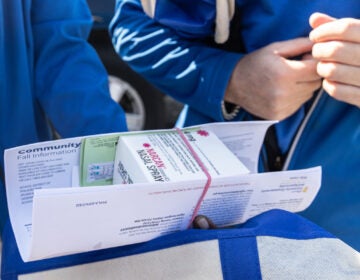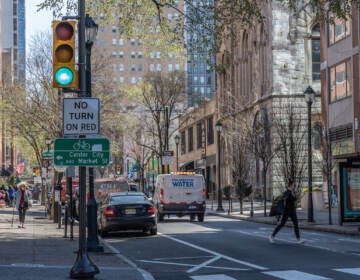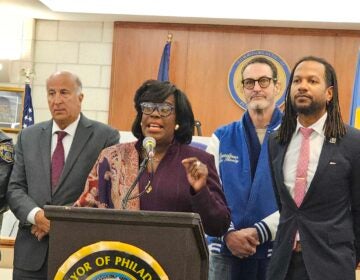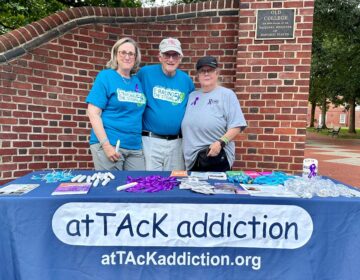Philadelphia residents are more understanding about substance abuse issues in the city, according to new Pew poll
More than 50% of Philly residents have family or friends struggling with substance abuse. One in three know someone who died from overdose.
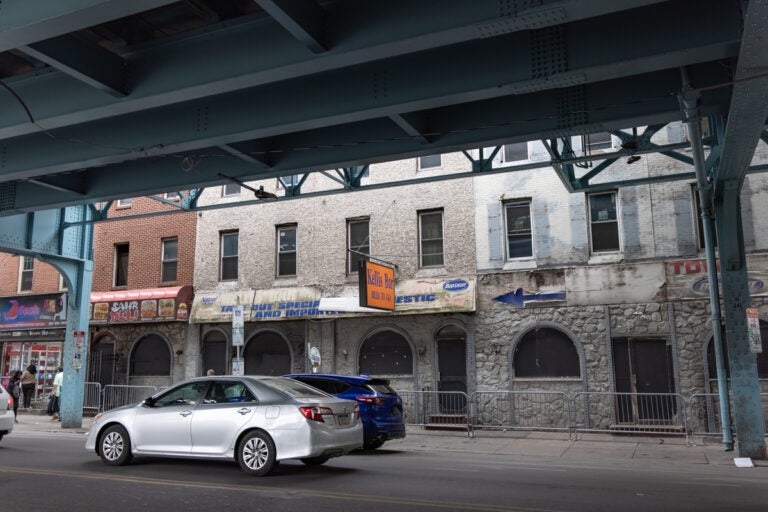
The sidewalk on Kensington Ave. near Allegheny Ave. in Philadelphia a day after the city cleared possessions, trash, and people experiencing homelessness, May 9, 2024. (Kimberly Paynter/WHYY)
From Philly and the Pa. suburbs to South Jersey and Delaware, what would you like WHYY News to cover? Let us know!
A new survey released by The Pew Charitable Trusts on Tuesday found that more Philadelphia residents recognize opioid use disorder as a chronic health problem, rather than believing that the disorder is something that people bring on themselves.
That’s a change from just a few years ago.
“We asked a question about whether drug use is something more akin to a chronic disease, something like heart disease or diabetes, or if it’s something that you bring upon yourself,” said Pew’s Katie Martin. “In 2019, 39% of Philadelphians said it was a chronic disease, compared to 51% in 2025.”
The poll also found changing views on how society should best treat those struggling with addiction.
“We did ask whether or not people preferred to have treatment for people with opioid use disorder or arrest and more punitive measures,” Martin said. “Overwhelmingly, Philadelphians preferred treatment to arrest.”
The issue hits home for many.
The survey found that nearly half of Philadelphians knew someone suffering from opioid addiction. One-third knew someone who died from an overdose.
One of the questions was specifically about the Kensington neighborhood, which has long been a focal point for the city’s efforts to reduce problems related to widespread substance abuse. Mayor Cherelle Parker’s administration has spent millions trying to clean up the intersection of Kensington and Allegheny avenues while working to keep encampments of unhoused residents from popping up in the surrounding area.
The poll cited residents of the River Wards — which includes Kensington, Fishtown, Bridesburg and Port Richmond – as those most heavily impacted by the opioid crisis, with 76% reporting a negative impact in 2025, up from 64% in 2019.
Of Philadelphians who said they were informed about the mayor’s efforts in Kensington, 46% said that the actions have been very or somewhat effective at addressing conditions, while 39% said that they were not very or not at all effective. As for Parker’s handling the opioid crisis in general throughout the city, residents were less positive. Just 28% ranked the administration’s actions as good or excellent, while 39% said they were not very good or not good. An additional 33% weren’t sure.
About 40% of residents say the opioid crisis is worsening, with only 8% of Philadelphians saying the situation is improving.
The survey was conducted from January through early March. Nearly 2,300 people responded. More than 1,700 filled out an online questionnaire, while 400 filled out their responses on paper and about 100 answered questions over the phone.

Get daily updates from WHYY News!
WHYY is your source for fact-based, in-depth journalism and information. As a nonprofit organization, we rely on financial support from readers like you. Please give today.



